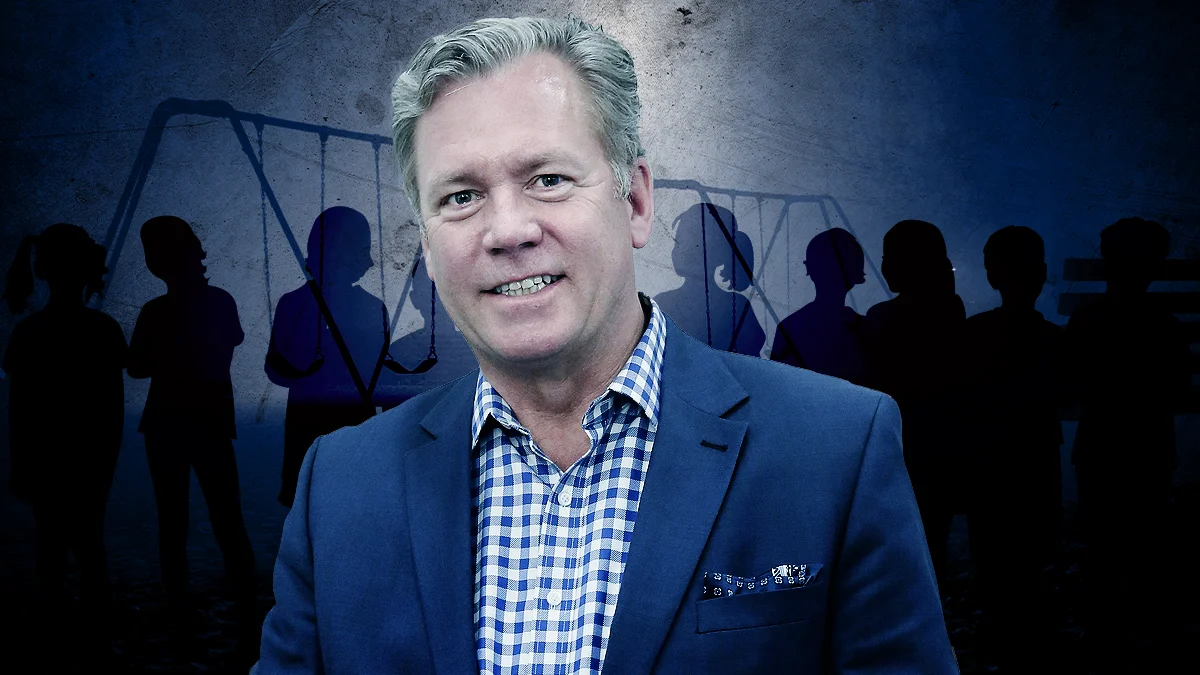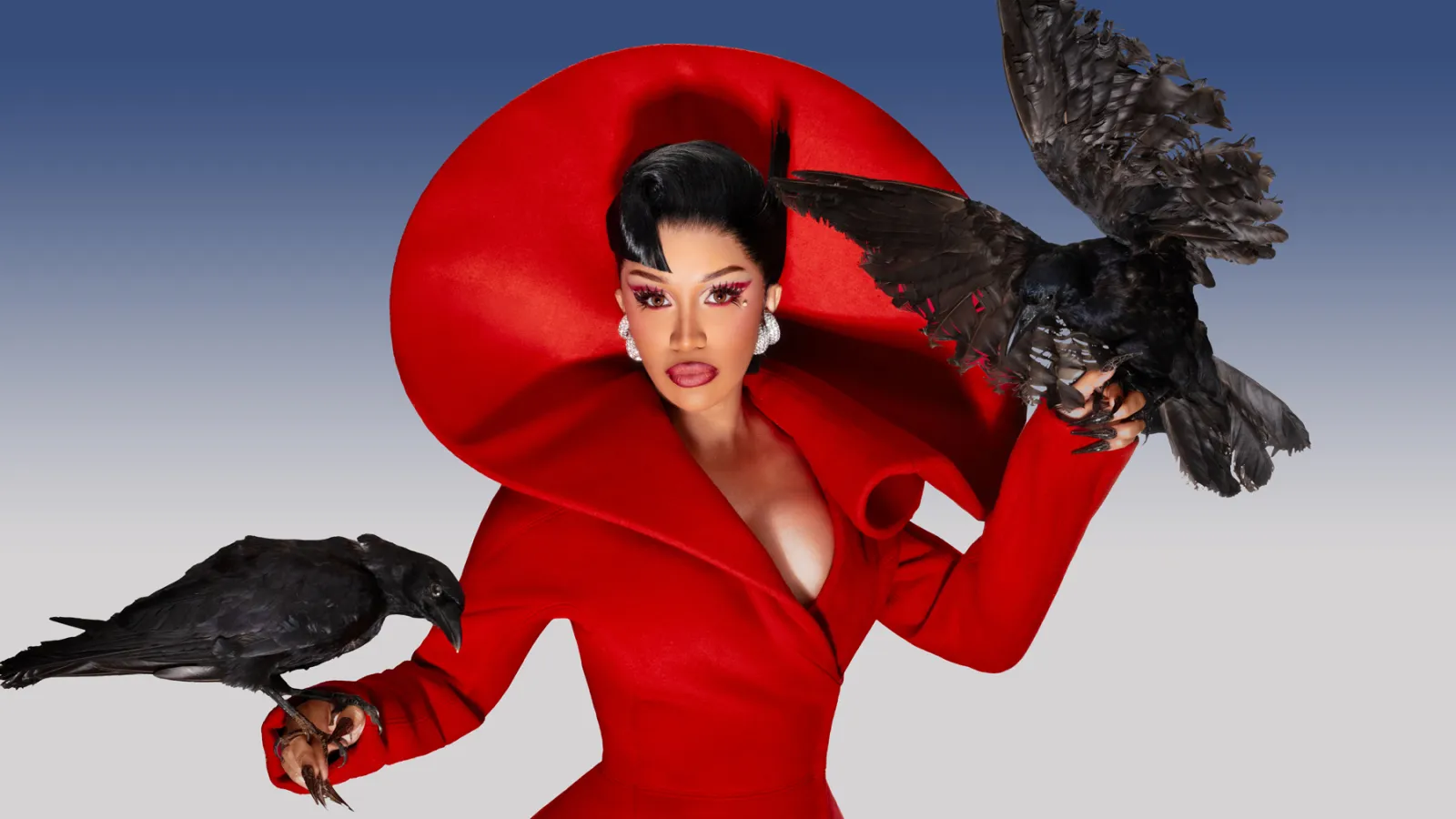By Brian Lowry
Copyright thewrap

“Predators,” the new documentary about the TV news program “To Catch a Predator,” comes across as painfully, almost uncomfortably conflicted in the view of its subject. Yet those NBC specials that unmasked would-be sex offenders feel especially relevant now, seen through the filter of QAnon and the Jeffrey Epstein case, while highlighting the unsettling nature of what we have come to embrace as “entertainment.”
Airing on NBC from 2004 to 2007, “To Catch a Predator” fueled the fear that anyone could be a sexual predator hiding in plain sight, with the show conducting elaborate sting operations that exposed men who thought they were chatting with minors to meet up for sex. When the men arrived, they instead came face to face with correspondent Chris Hansen, who pointedly interrogated them about their intentions before handing them over to police.
The show ran only a few years, but it has cast a long shadow. Indeed, watching the documentary, there’s a strong sense of how early apprehensions about what perils children face online tilled the ground for the QAnon hysteria, prompting a significant swath of the population to readily believe crazed conspiracies like “Pizzagate,” which falsely promoted the idea that a human-trafficking cult was operating out of a D.C. pizza parlor.
Those fears were subsequently stoked by Epstein, whose arrest on charges of sex trafficking of minors and subsequent suicide have stoked uncomfortable questions for President Trump’s Justice Department, which has sought to downplay an issue that Politico called “the horror story of our age,” reflecting deep-seated apprehensions about power and privilege in the 21st century.
As “Predators” — which is now playing in select theaters — makes clear, while it’s difficult to have even an ounce of sympathy toward the men involved, there’s nevertheless something unsettling about positioning those encounters as entertainment — capturing people at the moment they realize their lives are going to be irrevocably ruined.
Even some of the authorities interviewed for the documentary expressed their discomfort, with the benefit of hindsight, over the extent to which law enforcement allowed NBC and Hansen call the shots, which resulted in one suicide by a Texas assistant district attorney who shot himself as the police closed in on his house.
“Predators” also conveys just what a sensation the specials became, showing Hansen making the rounds of talk shows with Oprah Winfrey, Jimmy Kimmel and Jay Leno.
As ethnographer Mark de Rond observes in the documentary, the question is how we “seem to enjoy watching these men be humiliated on TV. What you’re seeing is effectively someone else’s life end. And they realize it.”
Director David Osit acknowledges wrestling with those issues in making the film, as well as his personal experience in having been molested as a child, which he brings into the conversation.
“It started as a public-service announcement,” Osit told TheWrap of “To Catch a Predator,” offering a warning about “stranger danger” and what parents didn’t know about who might be lurking online.
What people really responded to, though, was “the takedown, the punishment, and that became the legacy that has become what people imitate” — reflecting what Osit called a mix of “schadenfreude and horror.”
Indeed, the strange echoes of “To Catch a Predator” include a modern wave of copycats, with aspiring social media stars conducting their own vigilante-style stings, chatting with men online, luring them to public places and then shaming or chasing them down.
Hansen, meanwhile, migrated the format to a new online true-crime venue, called TruBlu. In an interview with Osit, he confesses to his unease about those replicating the sting format “for clicks and profit,” but appears unperturbed about other questionable aspects of the program’s cultural impact.
“I understand people saying, ‘You push it too far,’” Hansen says. “’You take a man at his worst and you put him on television. You shame him.’ I’m OK with that. I’ll take that criticism.”
Although “To Catch a Predator” found plenty of willing police partners during its initial run, some interviewed in the documentary questioned the ethics of the authorities essentially functioning as tools of the show. That included wearing body cameras before they were commonly used to capture visceral footage the producers wanted.
Those elements didn’t sit well with former District Attorney John Roach, who recalled saying at the time, “We’re in the law-enforcement business, not show business.”
What “To Catch a Predator” did quite effectively, though, was blur those lines, tapping into the appetite for true crime and justice while employing the tropes of modern reality television, a genre where watching people suffer — especially if they appear to deserve it — has become a staple of the formula.
Unlike the vigilantes and copycats, Hansen tells Osit that what he’s doing has “a greater purpose,” which seems as much like a rationalization as a convincing argument.
If there’s a common thread running through all of this, Osit sees the popularity of true crime, the fascination with QAnon and the related focus on Epstein as cousins of “To Catch a Predator,” amid a time of anxiety, concerns about being victimized and a fractured social order.
“People feel like they need to form their own communities to feel safe,” he said. “And that’s what QAnon really was, and that’s what true crime is. That’s the connection.”
Still, de Rond seems to get to the heart of the matter when he suggests the goal of “To Catch a Predator” wasn’t to understand or address the underlying problem, but rather to entertain — fueled by a lack of empathy and the appeal of a world boiled down to good and evil.
“It’s a very surreal thing, to have a window into the end of someone’s life as they know it, and for that to be so public,” Osit said. “It also says something about how our evolution has created a desire for that kind of entertainment.”
From that perspective, the ripples from “To Catch a Predator” continue today, which explains why “Predators” feels so compelling. Because when it comes to pushing ethical boundaries “for clicks and profit,” as Hansen put it, more than 20 years later, that idea has plenty of company.
“Predators” premiered in New York on Sept. 19 and is gradually rolling out to additional cities.



